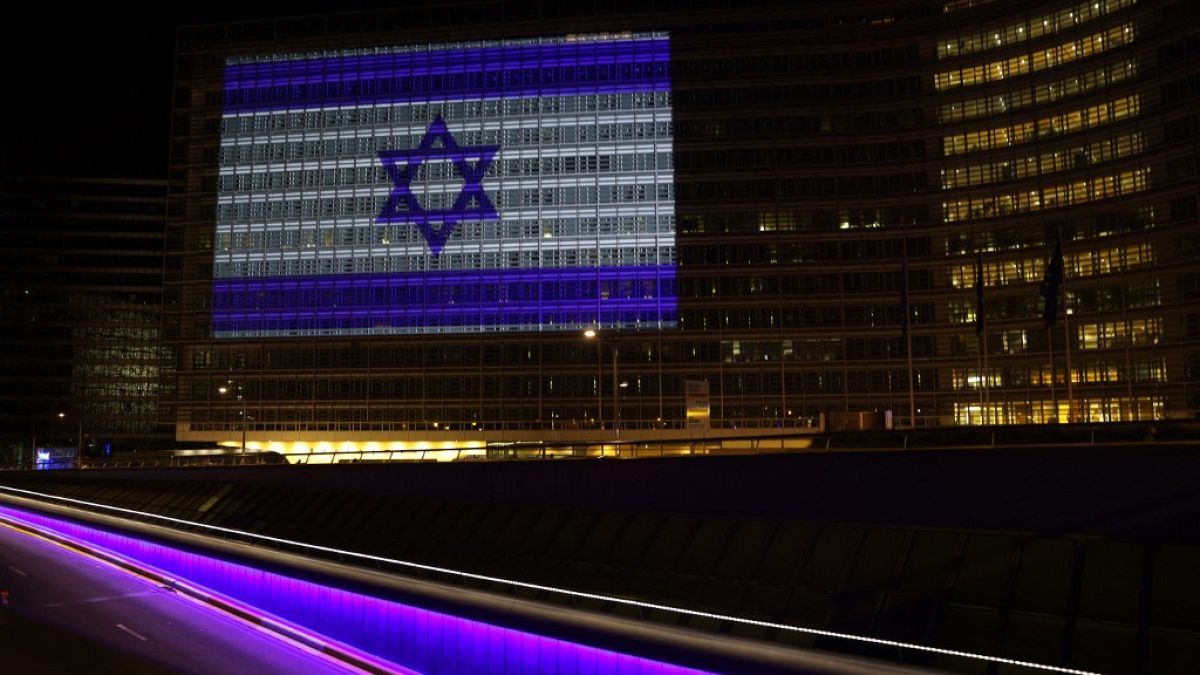Israel has the right to defend itself, but some of its actions since Hamas' unprecedented assault on Saturday "counter" international humanitarian law, the EU's top diplomat Josep Borrell said on Tuesday evening.
Speaking to reporters following an extraordinary meeting of EU foreign ministers in Muscat, Oman, Borrell said ministers had unanimously condemned Hamas' terrorist attack on Israel and called for the release of hostages, the protection of civilians and the respect of international law, "which means no blockage of water, food or electricity to the civilian population in Gaza".
On Monday, Israeli defence minister Yoav Gallant announced a "complete siege" of Gaza, saying he would halt the flow of essential supplies to the Palestinian enclave.
"Some of the actions - and the UN has already said that, such as cutting water, cutting electricity, cutting food to civilian populations is against international law, so yes there are some actions which are not in accordance with international law," Borrell said.
He also said that halting the EU's support to the Palestinians would be a "big mistake" and the "best present we could give to Hamas." The EU is the biggest donor of humanitarian and development aid to the Palestinian territories, which include the Hamas-controlled Gaza trip and the West Bank, governed by President Mahmoud Abbas of the Palestinian Authority.
On Monday, a diplomatic row erupted within the EU after the European Commission issued contradictory statements suggesting it would suspend aid to Palestine, triggering backlash from member states including France, Ireland, Spain and Luxembourg.
But Borrell said that an "overwhelming majority" of member states, with "two or maybe three exceptions" had stated during the ministerial meeting that the bloc's funding to the Palestine Authority must continue and that payments must not be interrupted.
"The fact is that at this moment the casualties in Gaza are also increasing, 150,000 people are internally displaced and the human situation is dire. So we will have to support more, not less, more," Borrell said.
He estimated that around "95%" of member states shared his view that the EU must increase its humanitarian support to people in Gaza. Austria is the only member state to have suspended its aid to Palestine, whilst Germany said it would temporarily halt payments whilst it reviews its Palestine aid programmes.
Borrell also said that the Commission's internal review of its financial assistance for Palestine, announced on Monday, should not be "an excuse" for delaying aid to Gaza at this critical time.
The Commission's review aims to ensure "no EU funding indirectly enables any terrorist organisation to carry out attacks against Israel."
In a sign of rifts within the EU executive, Borrell said that if the Commission review finds that funds have inadvertently fallen into the hands of Hamas, which it considers a terrorist organisation, "someone will have to take political responsibility for that."
Diplomatic sources told Euronews that during the ministerial meeting, tensions were high between Borrell and EU neighbourhood commissioner Olivér Várhelyi, who on Monday misleadingly announced the bloc had suspended its aid to Palestine without prior consultation with the Commission President Ursula von der Leyen.
Ministers also broached the difficult question of finding a peaceful resolution to the conflict. Any peace agreement needs to be done in cooperation with the Palestinians, saying this could be a "reawakening moment", according to Borrell.
"We have to work to make a two-state solution viable, although 30 years after agreement it looks more far away than ever," he said.
"These are sad days, but maybe an occasion to put again on the table the quest for peace in order to avoid another cycle of violence."
